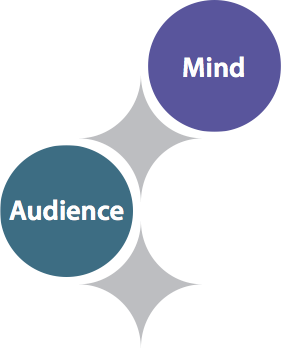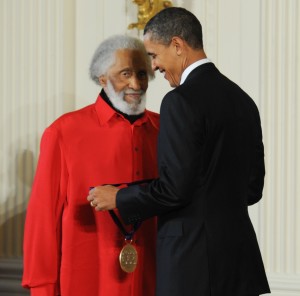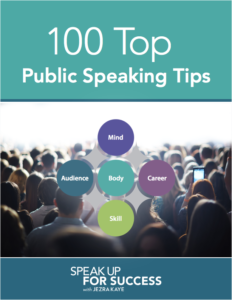 Imagine that you’ve just given a speech, and you feel awful! You left out some of the things you wanted to say, you stumbled a few times, and you’re pretty sure your face was beet red.
Imagine that you’ve just given a speech, and you feel awful! You left out some of the things you wanted to say, you stumbled a few times, and you’re pretty sure your face was beet red.
Yet, unaccountably, some audience members are coming up to you to say how much they enjoyed your insights, or your humor, or some of the stories that you told.
Should you blow these people off, because obviously they have no taste whatsoever?
No! On the contrary — believe what they’re telling you!
Why?
Because they are the experts on what they experienced!
And —with the possible exceptions of your mother and/or your spouse — they have no reason to lie to you about it.
Think You’ll Trust Audience Compliments When You’re More Skilled? Think Again!
Way back in the day, as a young jazz singer living in Boston, I sometimes coached instrumentalists on how to sing the songs they were performing.
Like many of my public speaking clients today, the musicians I coached didn’t like being complimented. Since they thought they sounded lousy, they couldn’t understand how I could be enjoying their performances.

“I’ll believe your compliments,” they would tell me, “when I’m a better singer and have earned them.”
That sounds convincing, but it ain’t necessarily so.
For example, Sonny Rollins, the world’s greatest living tenor saxophone player, was often bitterly disappointed with himself after playing a set that had his audience in ecstasy.
Why this discrepancy?
As a visionary artist, Sonny is always reaching for the next level, always trying to play the music he hears in his head.
But as an audience of mere human beings, we were more than satisfied with “this is the best thing you’re gonna hear in your entire life!”
There’s No Magic Moment When Self-Judgment Goes Away
The moral of that story is that becoming a more skilled performer doesn’t automatically mean that you will trust the positive feedback people give you.
In fact, it can mean just the opposite, because — as your skills grow — so will your awareness of the complicated, subtle, and nuanced things you didn’t quite pull off in a given presentation.
But here’s why that doesn’t matter:
For public speaking, it’s your audience’s experience that counts!
Don’t get me wrong: I’d love for you to have a wonderful experience each and every time you present.
But if only one party — you or your audience — thinks your speech was a success, which would you prefer to be true:
- You thought you were great, but your audience hated every minute? or
- You saw lots of room for improvement, but your audience thought you were great?
Yeah, I thought so.
You are, by definition, an unreliable observer of your own performance, for many reasons, including that:
- Part of you is inside your own head, which can be a messy and confusing place;
- You “see” your performance through the lens of your own doubts, fears, and aspirations; and often,
- You’re measuring yourself against some unattainable ideal of perfection.
Your audience doesn’t carry any of these burdens.
They don’t expect you to be perfect, and — again, with the possible exceptions of your mother and/or your spouse — they see you from a neutral perspective.
This means that any information or value or enjoyment that you deliver is a positive experience for them.
Now, Act Like You Believe those Compliments!
In spite of all my great arguments, it’s possible that you’ll go on feeling sure that your presentation sucked, no matter how many people tell you otherwise.
And that’s OK, because — to use an expression that I usually dislike — you’re entitled to your feelings.
But please don’t inflict those feelings on your audience.
Whether or not you believe the positive feedback you receive, the person who gives you that feedback has gone to the trouble of seeking you out and expressing it.
So — again, whether or not you believe them — don’t try to explain why they’re wrong!
Just smile graciously, shake their hand or take their card, and say,
Thank you! I’m really glad you enjoyed it.

 Buy 100 Top Public Speaking Tips: The Book!
Buy 100 Top Public Speaking Tips: The Book!
In 25 years of speaker coaching, I’ve helped my individual speaker coaching clients develop their strengths and skills to become authentic and effective communicators.
Along the way, I’ve developed tips for everything from small talk to speaking up in meetings, from managing fear to making an impact.
And now, I’ve shared it all in 100 Top Public Speaking Tips: The Book. This beautifully designed PDF booklet is searchable, clickable, and categorized, so that you can find what you need, instantly.
